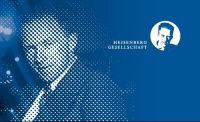
A New Glance from Science on the German Uranium Project 1939–1945

Werner Heisenberg (1901–1976) laid the foundations of quantum mechanics; received the Nobel Prize in Physics 1932.
During World War II he became involved in the so-called German Uranium Project, which was supposed to clarify the
usage potential of nuclear fission. Heisenbergs role in this project has been discussed extensively over the decades, and
yet there are still uncertainties and controversies about the scope and aim of the work.
Mark Walker’s overview of the various interpretations of the German Uranium Project may serve as an introduction to the wealth of literature; a recent bibliography by Manfred Popp is available from here.
This symposium aims to provide more clarity by presenting and discussing new scientific findings on the work
carried out.
This symposium is supported by Helmholtz research academy Hessen (HFHF).
Up-to-date information and registration (required) are to be found here
